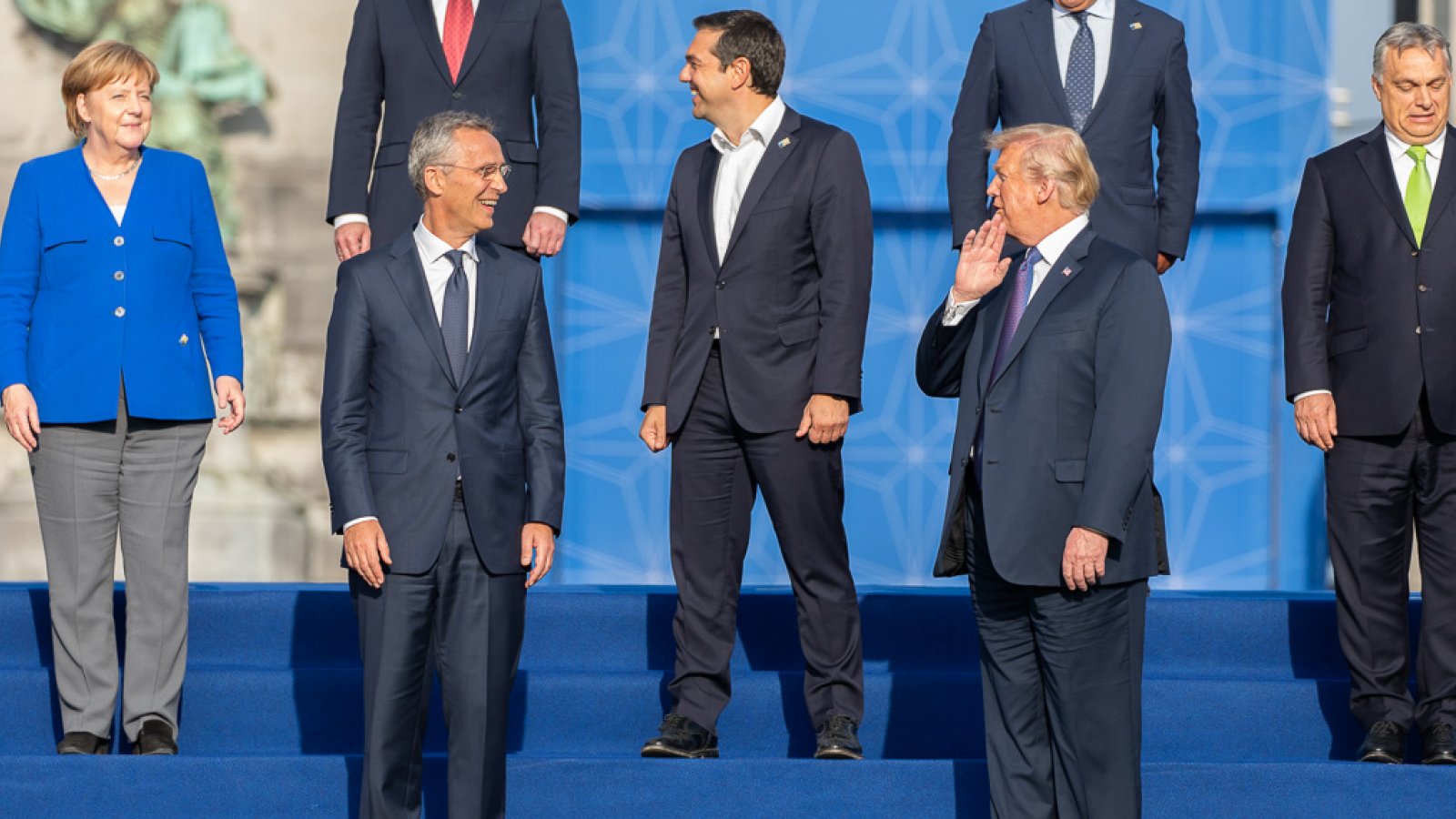
More evidence is emerging that suggests President Trump is not operating in the United States' best interests as he repeatedly has floated the idea of pulling out of NATO, a move that would be disastrous for the alliance and hand a huge strategic win to Vladimir Putin.
NYT:
Senior administration officials told The New York Times that several times over the course of 2018, Mr. Trump privately said he wanted to withdraw from the North Atlantic Treaty Organization. Current and former officials who support the alliance said they feared Mr. Trump could return to his threat as allied military spending continued to lag behind the goals the president had set.
In the days around a tumultuous NATO summit meeting last summer, they said, Mr. Trump told his top national security officials that he did not see the point of the military alliance, which he presented as a drain on the United States.
(...)
A move to withdraw from the alliance, in place since 1949, “would be one of the most damaging things that any president could do to U.S. interests,” said Michèle A. Flournoy, an under secretary of defense under President Barack Obama.
“It would destroy 70-plus years of painstaking work across multiple administrations, Republican and Democratic, to create perhaps the most powerful and advantageous alliance in history,” Ms. Flournoy said in an interview. “And it would be the wildest success that Vladimir Putin could dream of.”
Retired Adm. James G. Stavridis, the former supreme allied commander of NATO, said an American withdrawal from the alliance would be “a geopolitical mistake of epic proportion.”
(...)
American national security officials believe that Russia has largely focused on undermining solidarity between the United States and Europe after it annexed Crimea in 2014. Its goal was to upend NATO, which Moscow views as a threat.
Russia’s meddling in American elections and its efforts to prevent former satellite states from joining the alliance have aimed to weaken what it views as an enemy next door, the American officials said. With a weakened NATO, they said, Mr. Putin would have more freedom to behave as he wishes, setting up Russia as a counterweight to Europe and the United States.
An American withdrawal from the alliance would accomplish all that Mr. Putin has been trying to put into motion, the officials said — essentially, doing the Russian leader’s hardest and most critical work for him.
(...)
Mr. Trump’s threats to withdraw had sent officials scrambling to prevent the annual gathering of NATO leaders in Brussels last July from turning into a disaster.
Senior national security officials had already pushed the military alliance’s ambassadors to complete a formal agreement on several NATO goals — including shared defenses against Russia — before the summit meeting even began, to shield it from Mr. Trump.
But Mr. Trump upended the proceedings anyway ...
(...)
Mr. Trump’s skepticism of NATO appears to be a core belief, administration officials said, akin to his desire to expropriate Iraq’s oil. While officials have explained multiple times why the United States cannot take Iraq’s oil, Mr. Trump returns to the issue every few months.
Similarly, just when officials think the issue of NATO membership has been settled, Mr. Trump again brings up his desire to leave the alliance.
(...)
In his resignation letter last month, Mr. Mattis specifically cited his own commitment to America’s alliances in an implicit criticism of Mr. Trump’s principles. Mr. Mattis originally said he would stay through the next NATO meeting at the end of February, but Mr. Trump pushed him out before the new year.
(...)
European and American officials said the presence of Mr. Mattis, a former top NATO commander, had reassured allies that a senior Trump administration official had their back. His exit from the Pentagon has increased worries among some European diplomats that the safety blanket has now been lost.
Trump Discussed Pulling U.S. From NATO, Aides Say Amid New Concerns Over Russia (NYT)